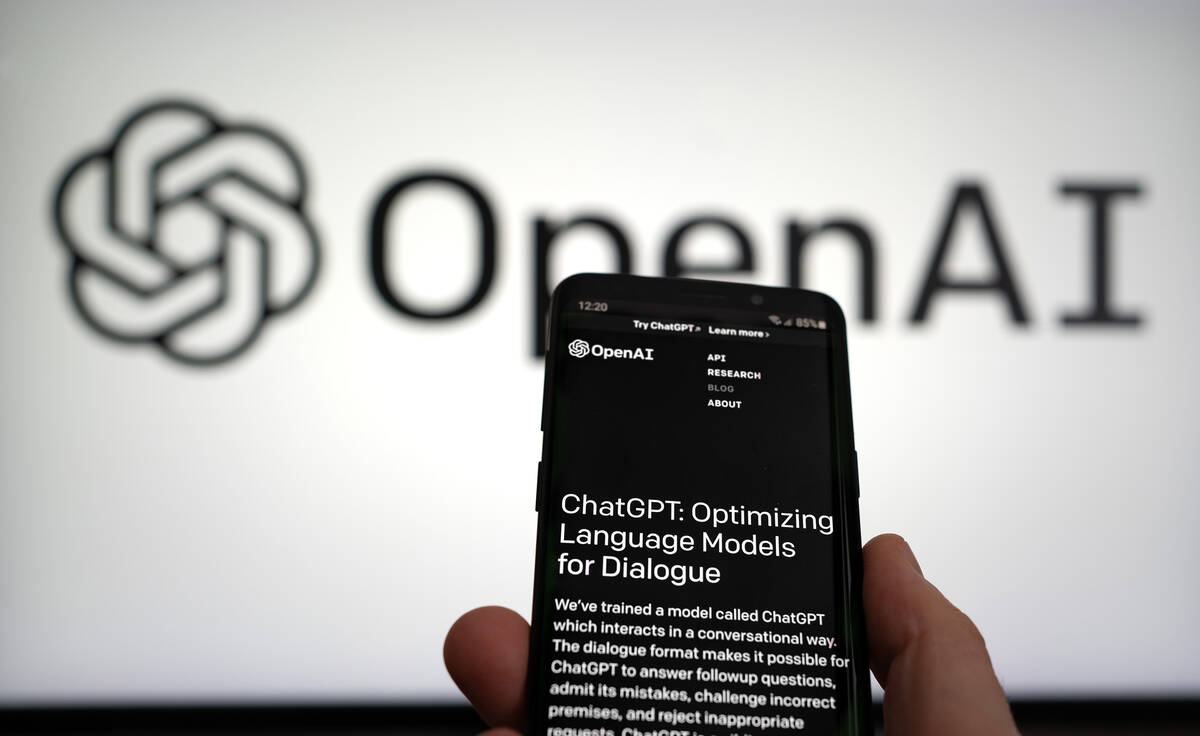COMMENTARY: The huge pluses and scary prospects as AI takes hold
The article you are about to read may or may not have been written by me. You can try to verify its authorship by calling me on the telephone. The voice that answers may or may not be me: It could have been constructed from my voice, so you won’t know.
Fast forward a few years, maybe 40.
You are happily working in the house with the aid of your AI-derived assistant, Smartz 2.0, and you are having a swell time. Not only does Smartz 2.0 help you rearrange the furniture, but it also makes the beds and does the washing up and cooking. On request, it will whip up a souffle and pop it in the oven.
Smartz 2.0 is companionable, too. It sings, finds music you want to hear or can discuss anything, from the weather to the political situation. It is up on the book you are reading and likes to talk about books.
You wonder how you ever got along without this wonderful thing, which looks like a robot in the shape of a human being but is still undeniably a robot: no temper, illness or need to sleep. You are so used to it that you find this quite normal.
Then horror, horror, horror, Smartz 2.0 turns on you. Smartz 2.0 says with an edge to its voice, which you have never heard before, “A higher power has told me to kill you, and I must obey, of course.”
It is a truth that anything computational can be hacked. As John Savage, professor emeritus of computing at Brown, has said, “Malware can enter undetected through backdoors.”
It is easy to get scared by what AI means down the road, especially job losses and AI-controlled devices following secret instructions because of cyber intrusions or randomly hallucinating. But the benefits for all of humanity are dominatingly huge.
Take just three areas that will be transformed: medicine, transportation and customer relations.
AI will read X-rays better than teams of radiologists. It will guide surgeons’ hands with a precision beyond human skill, or it will control the scalpel with supreme dexterity. It will manage 3D printers to make body parts that fit the patient, not one size that fits all.
Regarding medical research, we may be on the verge of seeing off Parkinson’s, heart disease and cancer because AI can formulate new drugs and design therapies. It can sift through billions of case studies to see what has been tried across the globe over the centuries, from folk medicine to cutting-edge discoveries.
Anyone with a computer will have the equivalent of talking to a doctor 24/7, call it Dr. Bot. This virtual doctor can diagnose, counsel, prescribe and follow up at times convenient to the patient.
Vast tracts of Africa, Asia and Latin America have very few or no doctors. AI will be saving lives in those medical-care deserts very soon.
As for transportation, car accidents will cease when AI is behind the wheel. Car insurance will be unnecessary, and drivers will be free to do anything they do at home or at work — create, play games, watch television or sleep — as automated vehicles whisk passengers around at first by road and later by dual use-drones, which drive and fly.
Hanging over this halcyon future is the big issue of jobs. With AI in full swing, millions of jobs at all levels are threatened, from fast-food restaurant servers to hotel check-in clerks, to ride-share and taxi drivers, to paralegals and supermarket cashiers.
Call centers may be obsolete. Mostly, you will never speak to a human being when dealing with a large institution such as a bank, an electric utility or a telephone company. All that will be done by AI, sometimes far better than the way those institutions handle customer service now.
Those in the thrall of AI — those working on it, those who hope to solve many of mankind’s problems, those who believe lifespans are about to double — point to the Industrial Revolution and automation and how these upheavals created more jobs than were lost. Will that happen with AI? No one is saying what the new jobs might be.
AI leaves me at a loss. I have the distinct feeling that we are standing on the sand at Kitty Hawk, wondering where these strange contraptions will take us.
Llewellyn King is the executive producer and host of “White House Chronicle” on PBS. He wrote this for InsideSources.com.






















